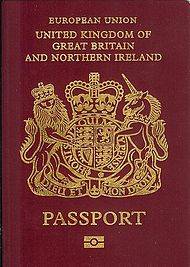Statistics
Americans Apply For UK Citizenship In Record Numbers

Amid concerns about politics and thanks to the introduction of a new UK tax system for residents, applications for British citizenship from across the Pond have risen substantially, official figures show. The story somewhat contradicts fears of an outflow of affluent people from the UK.
The number of US citizens seeking UK citizenship rose to the
highest on record in 2024, with US political
controversies and UK tax changes fuelling a rise in
applications, so it appears from various media reports.
More than 6,100 US citizens applied last year, the most since
records began two decades ago and 26 per cent more than in 2023.
Overall applications for UK citizenships were up 6 per cent to
251,000, another record. Figures also showed that in the year
ending March 2023, actual grants of British citizenship fell 7
per cent on the previous year to 181,480.
The data counters – to some extent – fears that the UK’s ending
of the resident non-domicile system, and
replacement with a residency scheme giving applicants a
four-year tax-free window – would hit UK revenues. However, the
data does not state what the wealth of the applicants is.
Non-doms are overwhelmingly HNW and UHNW people, and their exodus
to continental European countries such as Italy and Portugal, or
the United Arab Emirates, for example, has caused fears that
the UK will
suffer a drop in overall tax revenue. (See a
related article about how the changing rules affect American
expats
here.)
This news service has spoken to US-based advisors about the
phenomenon of Americans looking at foreign options, touching on
the challenges of escaping the clutches of the Internal Revenue
Service. Exiting the US and renouncing US citizenship is not
free. The State Department charges a flat fee for renunciation,
set at $2,350. Depending on tax status, a person may also have to
pay additional taxes to complete the process.
Advisors have told this news service
that even before the November 2024 elections, citizens on
both sides of the aisle were looking at foreign options. Some
were alarmed at talk suggesting that had Kamala Harris won office
with a Democrat majority in the House, she might push for wealth
taxes and even the idea of a tax on unrealised capital gains. On
the other hand, those who disliked the agenda of Donald Trump
also investigated foreign options.
In the past, the
worldwide system of tax that the US adopts, contrasting
with the territorial system used by most countries such as the
UK, Germany and France, has deterred US citizens from
working overseas, setting up firms there, or retiring, although a
number of countries have treaties with the US to stop people
being taxed twice. Even so, US expats are seen as a compliance
headache by foreign financial institutions, which means that
expats can struggle to open a bank account and run
investments.
In recent years, however, several specialist players, such as
Schroders, Maseco, London & Capital and Royal Bank of Canada,
have ramped up services to those with US connections.
Vontobel and a clutch of Swiss external asset managers have
developed US-focused offerings, obtaining SEC licences to do so.
But still, the US expat financial experience remains difficult.
The advocacy group, American Citizens Abroad, has campaigned for
the US to adopt a territorial tax code, such as that used by most
nations.
Ironically, the data about UK citizenship applicants from the US
came out shortly after President Trump unveiled his plan for
a “golden
card” system to encourage high net worth foreigners to come
to the US. This idea is part of a global market for
residency/citizenship-by-investment that is operated by several
jurisdictions, such as Portugal and Malta.
Home Office data shows that applications by US citizens surged in
the last quarter of 2024, rising 40 per cent year-on-year to
about 1,700. In total, there were 269,621 grants of British
citizenship in 2024, 30 per cent more than 2023.
(Editor's note: The story also comes at a time when the UK, along with other developed countries, faces political controversy about net immigration from certain countries and regions, such as the Middle East and Africa. Immigration from people in places such as Hong Kong – a former British colony – has tended to be largely under the political and media radar, or stirred little concern, it seems.)
